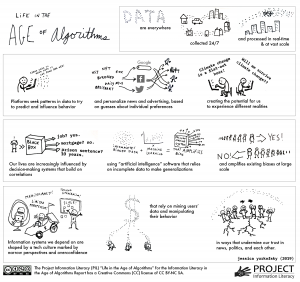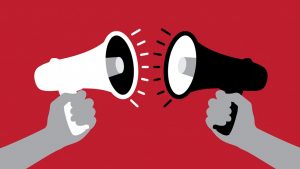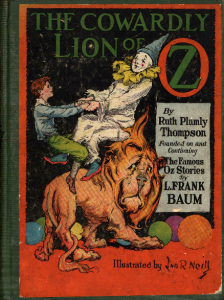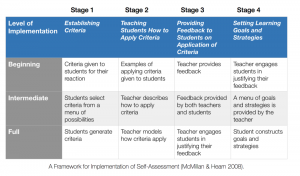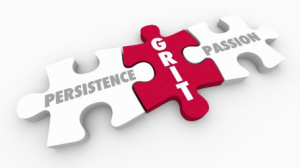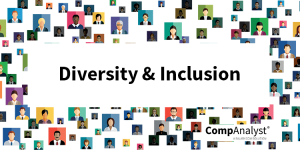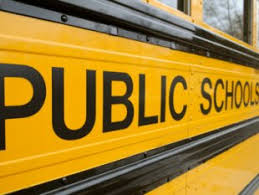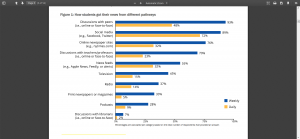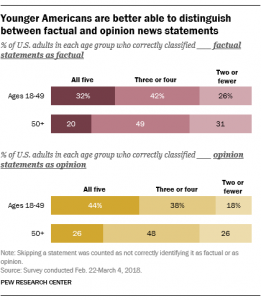This report from Project Information Literacy, presents findings about how college students conceptualize online information and navigate platforms that filter content and collect personal data. Offered here is a snapshot of how student conduct class research and everyday life information seeking and …Continue Reading
Category: Featured Web Sites
Free Speech Controversies on Campus
PEN America has published a Campus Free Speech Guide aimed at offering help to students and educators navigate free speech-related conflicts and controversies on college campuses. The guide includes advice for students facing hate speech, campus protests, and harassment including advice about: …Continue Reading
Celebrating the Public Domain: 19 in 2019
In June of 2018 the library posted a list of items just coming into the public domain that can be digitized by the USF Tampa Library. We asked our community to vote for what they most would like to see digitized. The list of newly digitized items from the project is available through this post in Digital Directions. We would like to continue this on an annual basis. Here is a list of possible titles for our 2020 digitization and we would like your help narrowing it down. Vote for your favorites here:
https://usf.az1.qualtrics.com/jfe/form/SV_0pLGWRNAG86Vpdz.
Student Self-Assessment: Reframing Assessment as Learning
This thoughtful post from Riche University about the role of self-assessment in higher education is worth a look.
Academic Writer Guide
The USF Tampa Library has created a guide to Academic Writer, a web-based application providing interactive tools to help students and faculty learn and apply APA Style. It features point of need quick guides and video tutorials. It also includes all of the content from the APA Publication Manual full text so students need not purchase it as a requirement for their courses. The platform includes sample materials (references, papers, tables and figures), self-quizzes and tests that can assist in the teaching of APA Style.
Researchers are Questioning the Use of the Concept of “Grit.”
In a recent article, Jill Barshay reports on several studies published in peer-reviewed journals in the past two years that have identified problems with the notion of grit. Angela Duckworth, who wrote a best-selling book on the concept describes “grit” as a combination of perseverence and passion and how important it is for academic success. Image credit.
Diversity and Inclusion Resources: Inclusive Pedagogy
LibGuides are those created by librarians as good starting points for research and identifying quality resources on various topics. <a LibGuides are those created by librarians as good starting points for research and identifying quality resources on various topics. The Diversity and Inclusion Resources Guide from Denison Libraries offers some wonderful resources for those educators who would like to see a nice one-stop shopping place for resources. Remember that your librarians here at USF can create these guides customized to some of the courses you teach.
The Tapestry of American Public Education: How Can We Create a System of Schools Worth Choosing for All?
A recent report published by Peter W. Crookson Jr., Linda Darling-Hamond, Robert Rothman and Patrick Shields from the Learning Policy Institute discusses school choice — the movement to find alternatives to publicly funded and publicly operated school districts — is not an end in itself but rather a means to an end. In the words of the authors, it exists to “create a system in which all children choose and are chosen by a good school that serves them well and is easily accessible. “ It has been the subject of debate, particularly as seen by the post by Carol Burris and Diane Ravitch. They look at the issue of governance and why it matters who is in charge. This is a very interesting discussion for all those interested in policy that affects public schools and choice.
How Students Engage with News: Five Takeaways for Educators, Journalists and Librarians
Project Information Literacy produced a research report about how students access and consume current news stories and events. The report identifies the many pathways for students to obtain news information, the influence of social media, the role of news and media in student lives, why students share news items, and more
Identifying Fact vs. Fiction: Pew Study Results
A new analysis from the Pew Research Center indicates that younger Americans are better than their elders at separating factual from opinion statements in the news. In a recent survey from Spring of 2018 adults were asked to categorize five factual statements and five opinion statements. Results showed that overall, 44% of the population from 18-49 got all five correct, while the above age 50 group managed only 26% correct.
